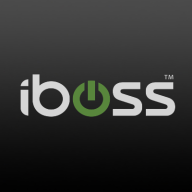


Microsoft Defender for Cloud Apps and Cloudflare One compete in cloud security management, each offering distinct advantages. Microsoft Defender for Cloud Apps has the edge due to its robust threat detection and comprehensive integration with Microsoft services, making it highly valuable within the Microsoft ecosystem.
Features: Microsoft Defender for Cloud Apps provides seamless integration across different clouds, robust threat detection, and comprehensive security posture insights. It excels in managing cloud environments and integrates well with other Microsoft services, offering unified solutions. Cloudflare One offers ease of use, strong DDoS protection, and a user-friendly interface, making it particularly appealing for simpler setups and those needing efficient deployment without extensive configuration.
Room for Improvement: Microsoft Defender for Cloud Apps could improve integration with non-Microsoft products, enhance macOS support, and provide better reporting capabilities. Some users experience occasional false positives and desire more seamless integration across multi-cloud and hybrid environments. Cloudflare One users report challenges with documentation, onboarding complexity, and limited support for free plans. Improved insight into WAF rules and streamlined support processes are also needed.
Ease of Deployment and Customer Service: Microsoft Defender for Cloud Apps offers flexibility in hybrid and public cloud environments and benefits from its integration within the Microsoft ecosystem, facilitating smoother deployment. While technical support is generally positive, responsiveness varies. Cloudflare One is notably straightforward in public cloud settings, though initial setup can be confusing. Its technical support is generally favorable, yet lacks depth in the free-tier support offerings.
Pricing and ROI: Microsoft Defender for Cloud Apps is often bundled with Microsoft’s E3 and E5 licenses, providing a cost-effective solution within a broader Microsoft context, though its licensing model may be considered complex and costly for smaller enterprises. ROI is demonstrated through its prevention capabilities and reduced operational overhead. Cloudflare One offers competitive pricing, especially given its security benefits. Despite a sometimes opaque pricing structure, its ROI is viewed favorably due to the competitive costs and straightforward DNS management.
| Product | Market Share (%) |
|---|---|
| Microsoft Defender for Cloud Apps | 8.8% |
| iboss | 2.3% |
| Cloudflare One | 6.1% |
| Other | 82.8% |



| Company Size | Count |
|---|---|
| Small Business | 6 |
| Midsize Enterprise | 6 |
| Large Enterprise | 5 |
| Company Size | Count |
|---|---|
| Small Business | 9 |
| Midsize Enterprise | 2 |
| Large Enterprise | 10 |
| Company Size | Count |
|---|---|
| Small Business | 13 |
| Midsize Enterprise | 10 |
| Large Enterprise | 18 |
iboss offers a comprehensive security platform designed for diverse use cases such as web filtering, data loss protection, corporate proxy services, and URL filtering.
iboss integrates advanced features to address dynamic security needs, leveraging its strength in SASE, ZTNA, AI initiatives, and cloud integration, while ensuring seamless operations for remote work. It excels in historical forensics, malware protection, and flexible cloud deployments. Users benefit from comprehensive traffic scanning, robust malware detection, and PaaS capabilities that reduce hardware management. An intuitive admin console ensures efficient management with content filtering and low false positives. SSL decryption enhances security, while DLP protects data in AI conversations. Deployment is rapid and scalable, allowing effortless integration with emerging technologies.
What features does iboss offer?
What benefits and ROI should users consider?
iboss finds significant application in sectors such as education, where web filtering for K-12 is crucial, and in corporate environments requiring robust proxy services and URL filtering for network security. Its adaptability is essential in scenarios demanding flexible, decentralized security frameworks, particularly for remote work setups.
Cloudflare One is a single-vendor Secure Access Service Edge (SASE) platform that enables Zero Trust security and any-to-any connectivity across enterprise applications, users, devices, and networks. Cloudflare One helps organizations simplify, modernize, and consolidate their IT architecture by converging security and networking services on our single global network and control plane.
Many organizations start by adopting our Security Service Edge (SSE) services — like ZTNA, SWG, CASB, and DLP — to reduce their attack surface, stop threats like phishing and ransomware, protect data, and apply identity-based Zero Trust verification across web, SaaS, and private app environments. Others prioritize simplifying network connectivity across offices, data centers, and cloud environments with our WANaaS.
Every service is available for customers to run in every location across Cloudflare’s global network, which today spans 330+ cities in 120+ countries, so you can scale connectivity with fast, consistent protections everywhere.
Microsoft Defender for Cloud Apps is a comprehensive security solution that provides protection for cloud-based applications and services. It offers real-time threat detection and response, as well as advanced analytics and reporting capabilities. With Defender for Cloud Apps, organizations can ensure the security of their cloud environments and safeguard against cyber threats. Whether you're running SaaS applications, IaaS workloads, or PaaS services, Microsoft Defender for Cloud Apps can help you secure your cloud environment and protect your business from cyber threats.
Reviews from Real Users
Ram-Krish, Cloud Security & Governance at a financial services firm, says that Microsoft Defender for Cloud Apps "Integrates well and helps us in protecting sensitive information, but takes time to scan and apply the policies and cannot detect everything we need".
PeerSpot user, Senior Cloud & Security Consultant at a tech services, writes that Microsoft Defender for Cloud Apps "Great for monitoring user activity and protecting data while integrating well with other applications".
Simon Burgess,Infrastructure Engineer at SBITSC, states that Microsoft Defender for Cloud Apps is "A fluid, intelligent product for great visibility, centralized management, and increased uptime".
We monitor all Cloud Access Security Brokers (CASB) reviews to prevent fraudulent reviews and keep review quality high. We do not post reviews by company employees or direct competitors. We validate each review for authenticity via cross-reference with LinkedIn, and personal follow-up with the reviewer when necessary.